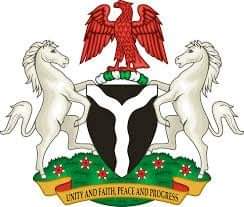
The Federal Government on Thursday asked civil servants to shun corrupt practices in the discharge of their duties.
Permanent Secretary, Federal Ministry of Labour and Employment, Dr Yerima Peter Tarfa, said this in Abuja while flagging off a workshop on anti-corruption and whistle-blowing policy.
The workshop was organised for the Directorate Level officers of the ministry.
In a statement by the Deputy Director, Press and Public Relations, Federal Ministry of Labour and Employment, Charles Akpan, the permanent secretary asked the officers to complement the efforts of the government in curbing corruption, by adopting transparent and anti-corruption practices in the conduct of government businesses.
He explained that the workshop was borne out of the need for civil servants to properly understand corruption and whistle-blowing policy, and how they could collectively and individually support the efforts of the government in checking corrupt practices.
The permanent secretary emphasised the need for civil servants to key into the anti-corruption war of the government, which he said was “one of the operational mantras of the present administration” and “an integral part of the crusade for national rebirth and social regeneration.”
He noted that corruption goes beyond financial crimes to include other forms of malpractices in the conduct of government duties such as acts of omission, negligence and commission in the discharge of duties.
He added that attitude to work, manner of interaction with stakeholders, both internal and external, all contribute directly and indirectly to corrupt practices.
The permanent secretary urged the participants to engage effectively in the workshop, as the ministry expected them to become the new champions of the war against corruption in their various departments and units.
Earlier, in a welcome address, Director, Special Duties and Projects Department of the Ministry, Dr Martina Nwordu, stated that the objective of the workshop is to create awareness among the directorate level officers in the Ministry on the dangers of corrupt practices and their roles, in the delivery of their duties, towards curbing the menace.
The other objective is to stimulate interest in the participants to disseminate the content of the workshop to their colleagues and peers in their various departments and units.
By Frank Ikpefan












